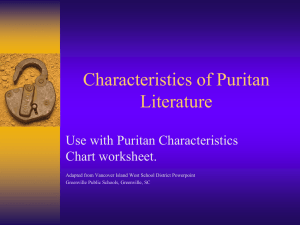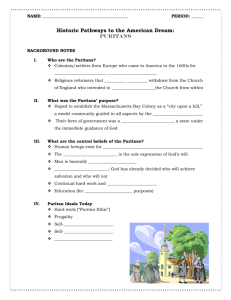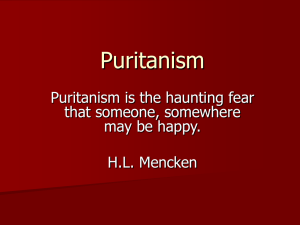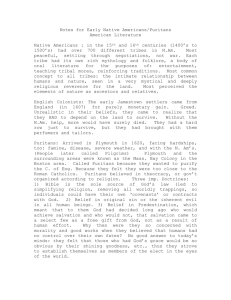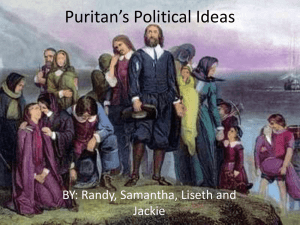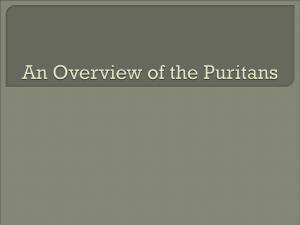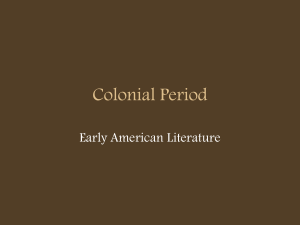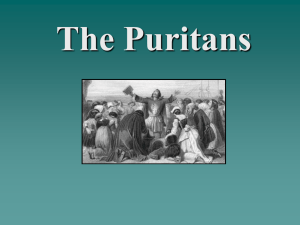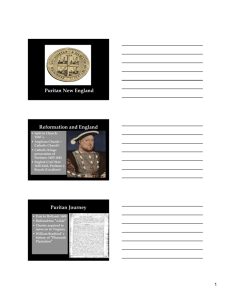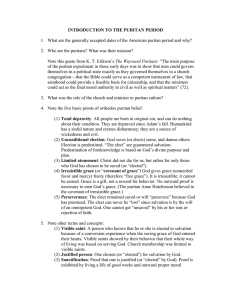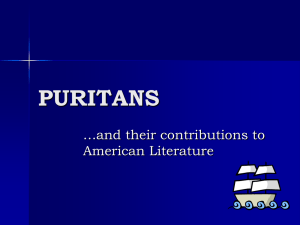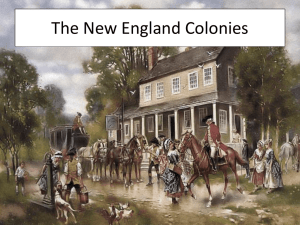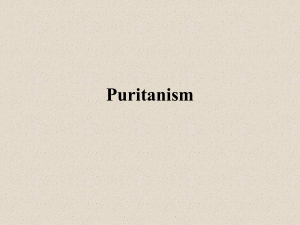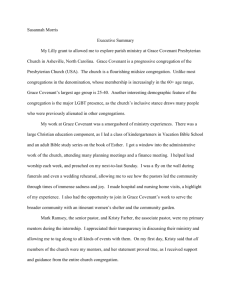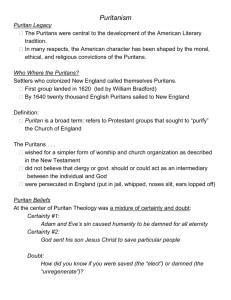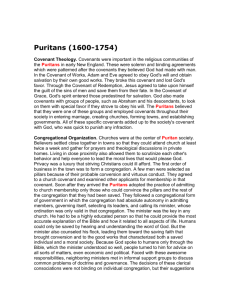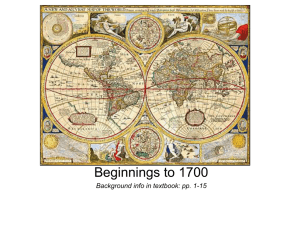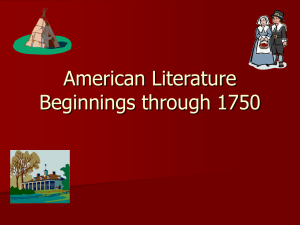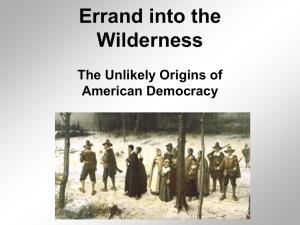Puritanism – A Historical Background
advertisement
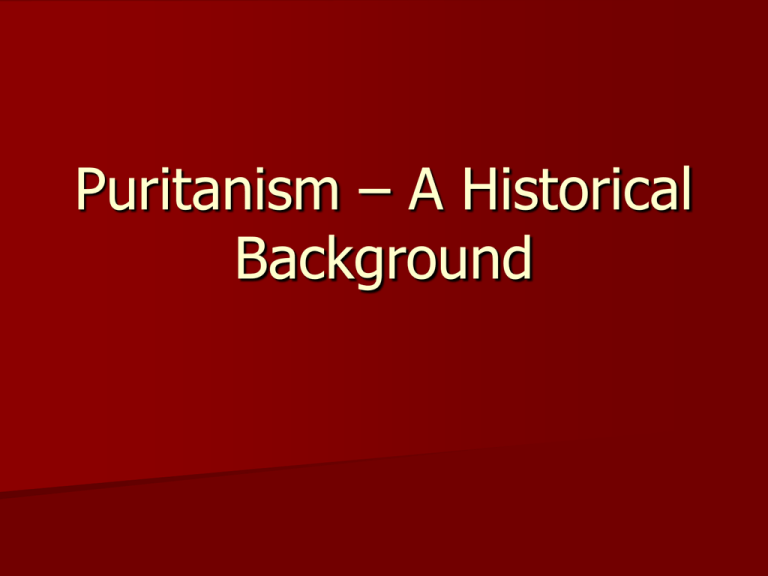
Puritanism – A Historical Background ►The Puritan movement began in England in the middle of the sixteenth century (1500’s). ►Puritanism moved into the New England colonies by way of settlers in the New World. ► Christians in England had began to feel that the church was corrupt. ► As a result, reformers suggested that scripture, NOT the clergy, should guide Christian life. ►THE POPE’S AUTHORITY WAS CHALLENGED! ► 1543 – King Henry broke away from the Catholic Church to form the Church of England. ► BY LAW English citizens were forced to join the new church. ► However, many began to believe that their quarrel was with a temporal authority dictating spiritual life, not with the pope. These non-conformists were called PURITANS!! Several beliefs differentiated Puritans from other Christians: PREDESTINATION: The belief that all features of salvation are determined by God’s sovereignty. Including those were to be saved *Belief in Jesus was not enough! *Participation in sacraments was not enough! Neither of the above could effect salvation! JUSTIFICATION: The gift of God’s grace to the elect (those “CHOSEN” for salvation). SANCTIFICATION: The behavior that resulted in an individual when they had been saved. Evidence of salvation, but did not cause it!!!! Primary Puritan Influences Martin Luther (1483-1546) – A German theologian who attacked the corruption in the Catholic Church with the publication of his 95 thesis. – Believed that all people were innately endowed with grace through God. – Argued that no pope or bishop had any God-given right over the souls of men. John Calvin (1509-1564) – Believed that the downfall of mankind was directly related to the corruption resulting from the fall of Adam and Eve. – Believed that God’s forgiveness is limited to a select group of followers (LIMITED ATONEMENT). – Believed THAT God’s forgiveness could neither be earned nor denied (IRRESTIBLE GRACE). Calvin Cont. – Felt that God’s chosen remain in a state of grace while on earth and are taken directly to heaven when dead (PERSEVERANCE OF SAINTS). Covenants of Puritan Thought The Covenant of Works – God promised and his progeny eternal life if they obeyed moral law. – After Adam broke this covenant, God made a new covenant with Abraham. – Puritans believed they were direct descendants of Abraham. The Covenant of Grace – This requires an active faith and “softens” the doctrine of predestination. – God still chooses the elect but there is now a sort of “contract” or understanding. Punishment for sin is a proper response to disobedience. The Covenant of Redemption – The preexistence of the aforementioned covenant. – Christ bound God to accept him as man’s representative. If Christ paid the price for the redemption of believers, his followers would be washed of their sins. Puritanical Laws and Punishments • The laws and restrictions of the Puritans are known as some of the harshest in early American colonization and were administered through religion. – A person was fined, imprisoned, and whipped for non-attendance at church services! • People were dealt with more harshly if they spoke against religion or denied the divine origin of any book from the Bible. – Women were not allowed to wear lace or have clothes that showed skin! – EXCEPTION – Slashes in the wrists and one in the back – Long hair worn by men, smoking in public, or showing P.D.A. was unacceptable!! – Youths were not allowed to court one another in public and needed the consent of the girl’s parents to court period! – Children were often found crying in fear they would go to hell and not be chosen as the elect! • Crying was done privately as children were punished for doing so in public!!!!!! Puritan Literature (1650-1750) Content: Obviously the content was religious and included such themes/ideas Life is a “test”: winners go to Heaven, losers go to hell! Earth is a battlefield between God and Satan American is a holy “promised land” where Puritans will create Heaven on Earth, a Christian utopia! Literary Genre: sermons and religious tracts diaries histories personal narratives religious poems Effect: There was very little, if any, imaginative literature produced. - If such lit. was produced it was for personal satisfaction and not to be published. Historical Context: Puritans were highly educated and literate (many had university degrees), mainly to understand scripture!


